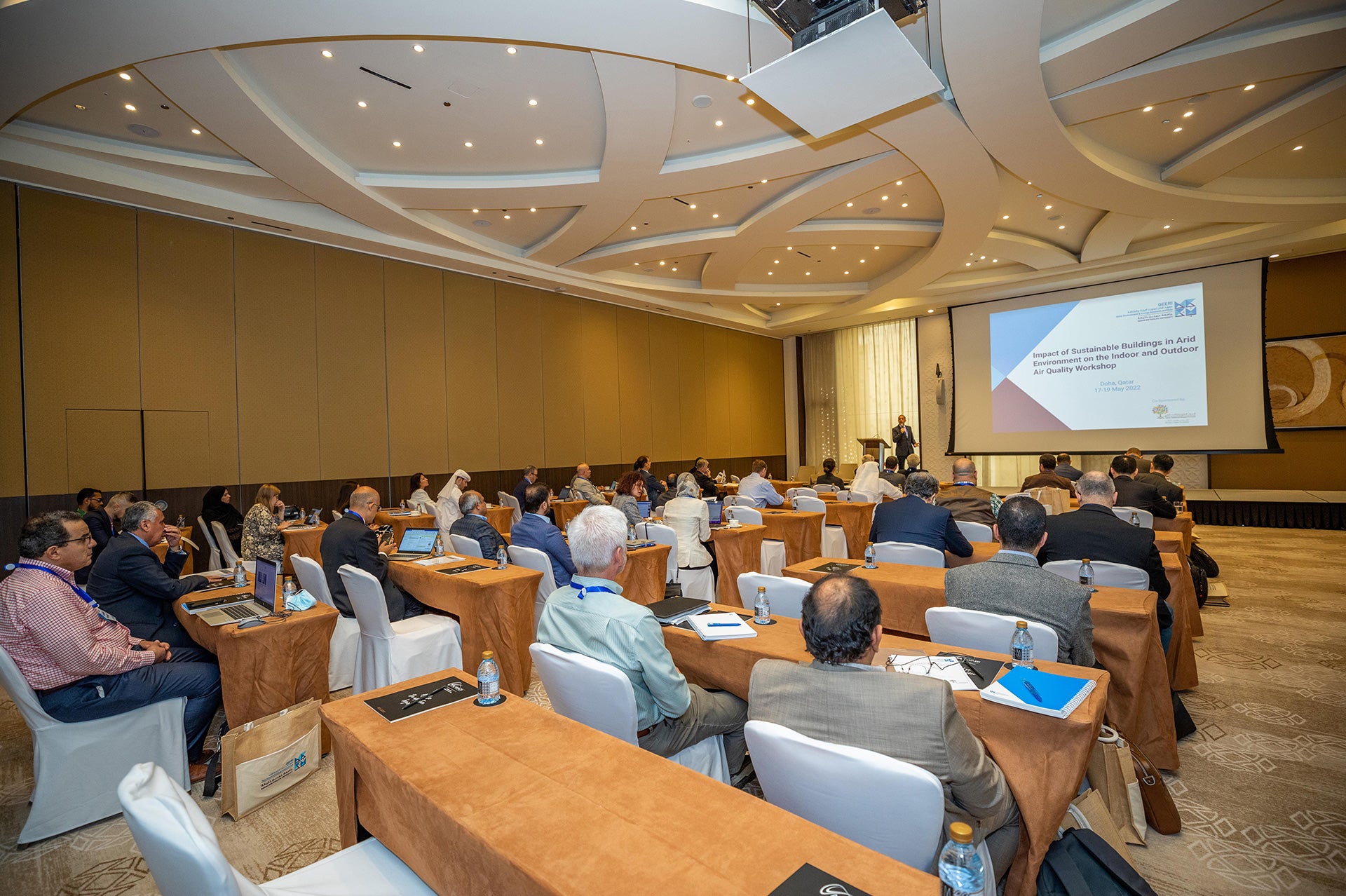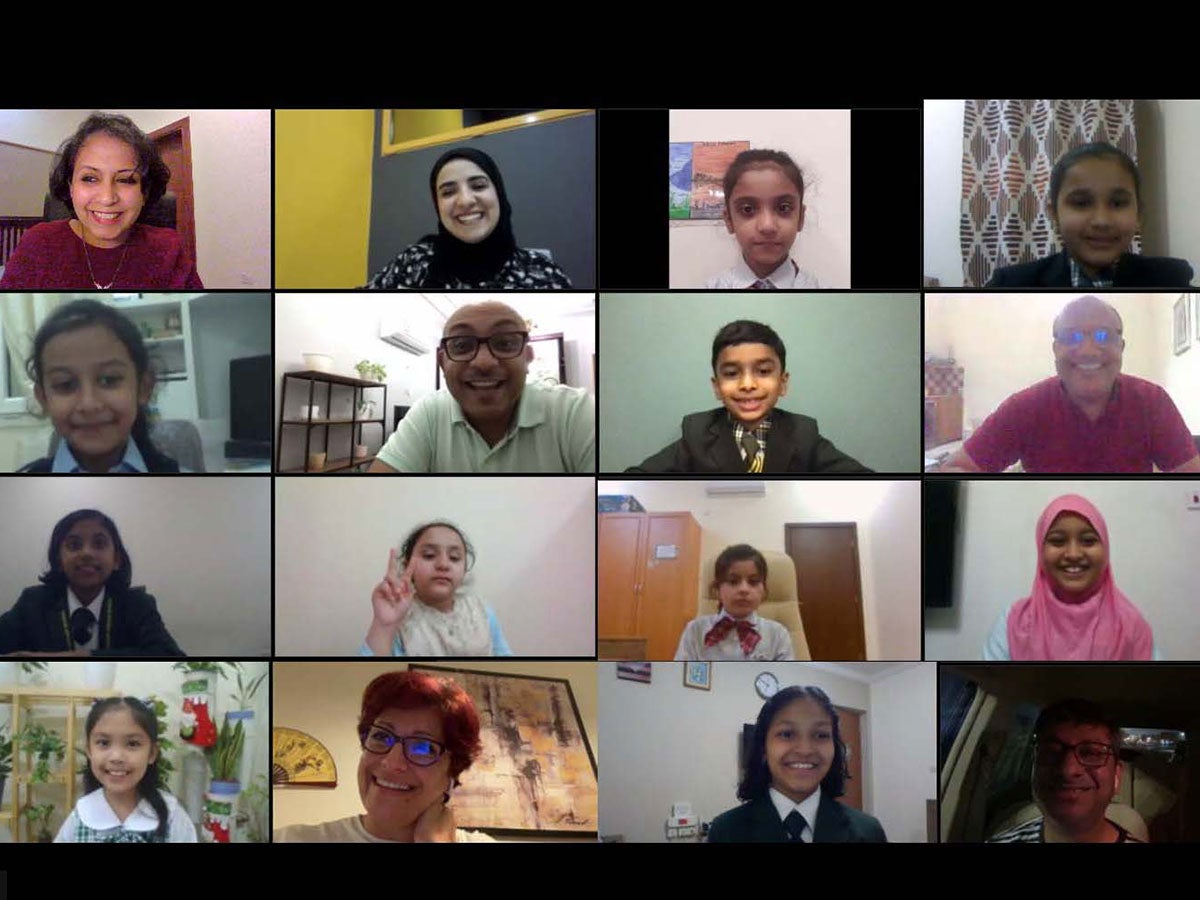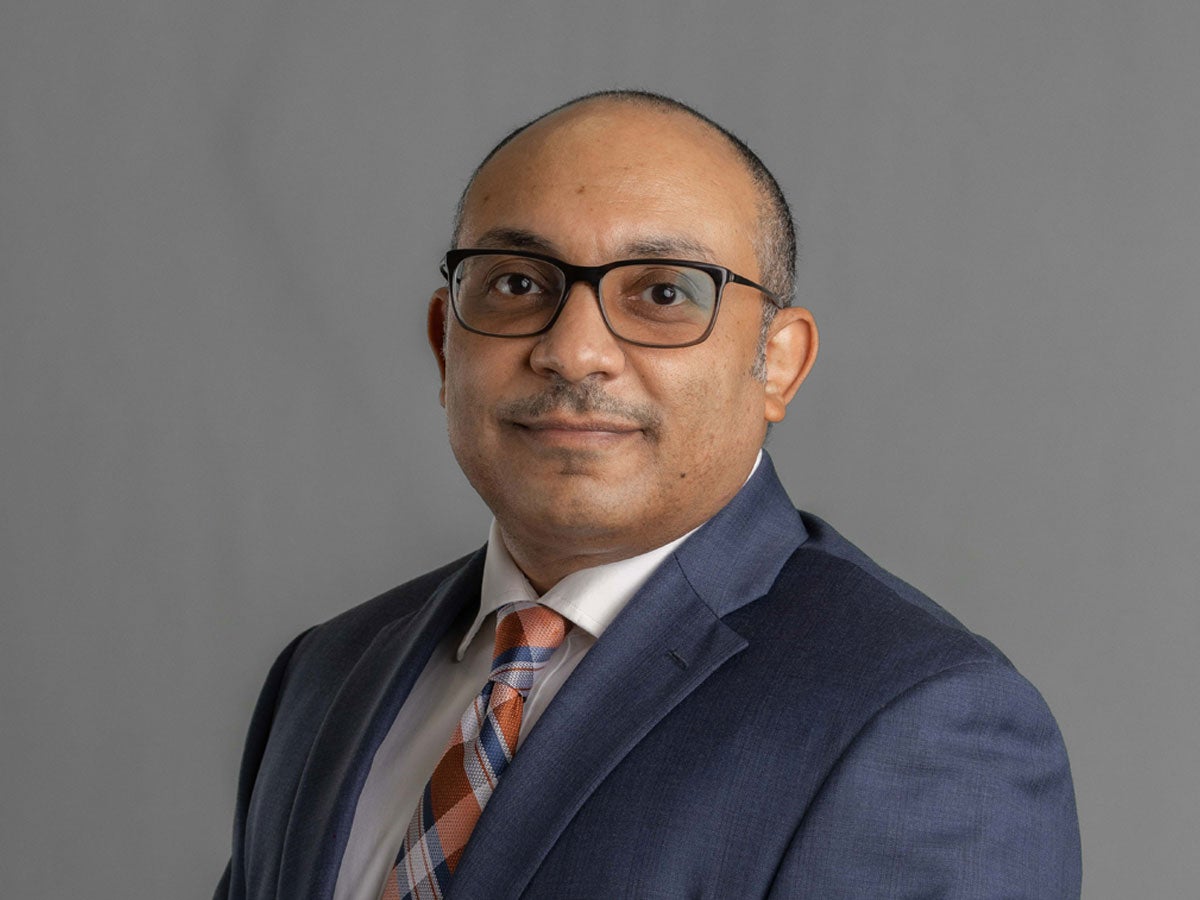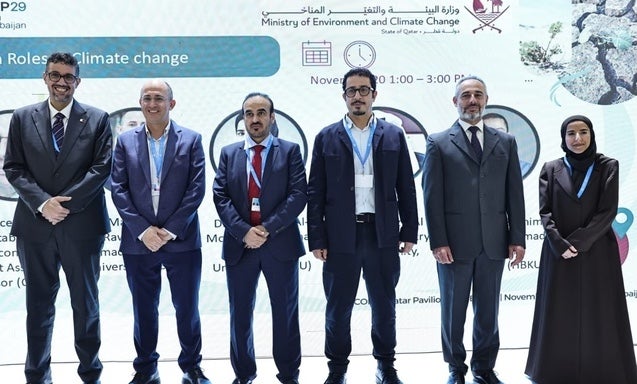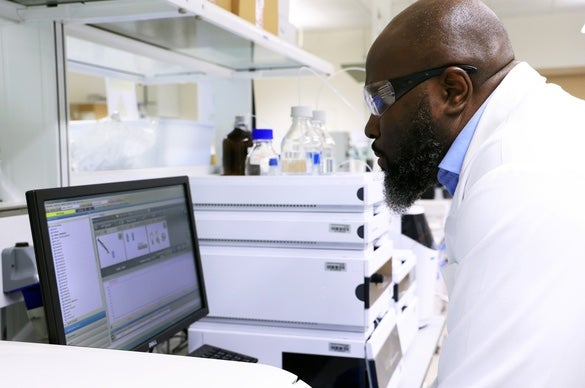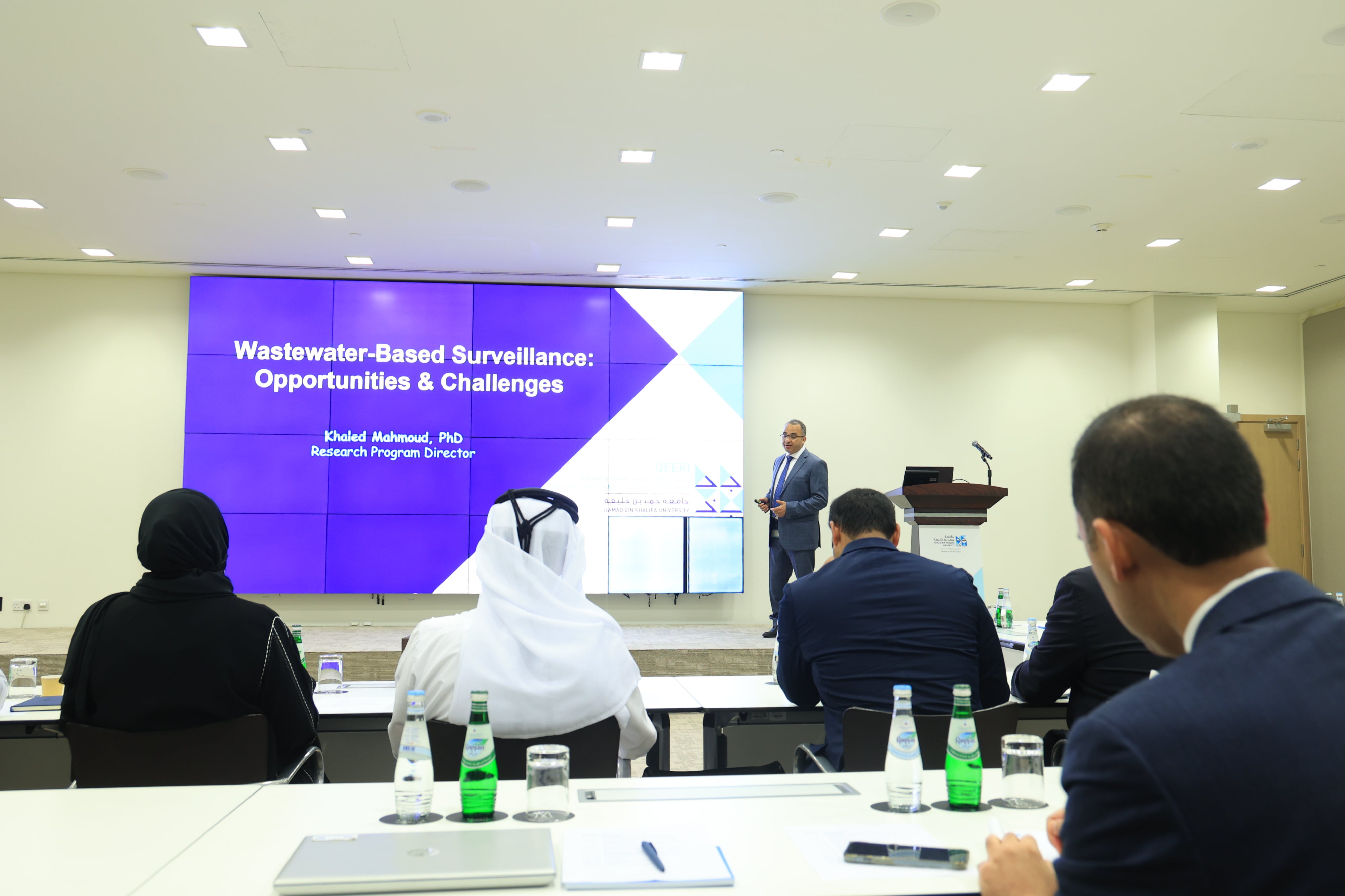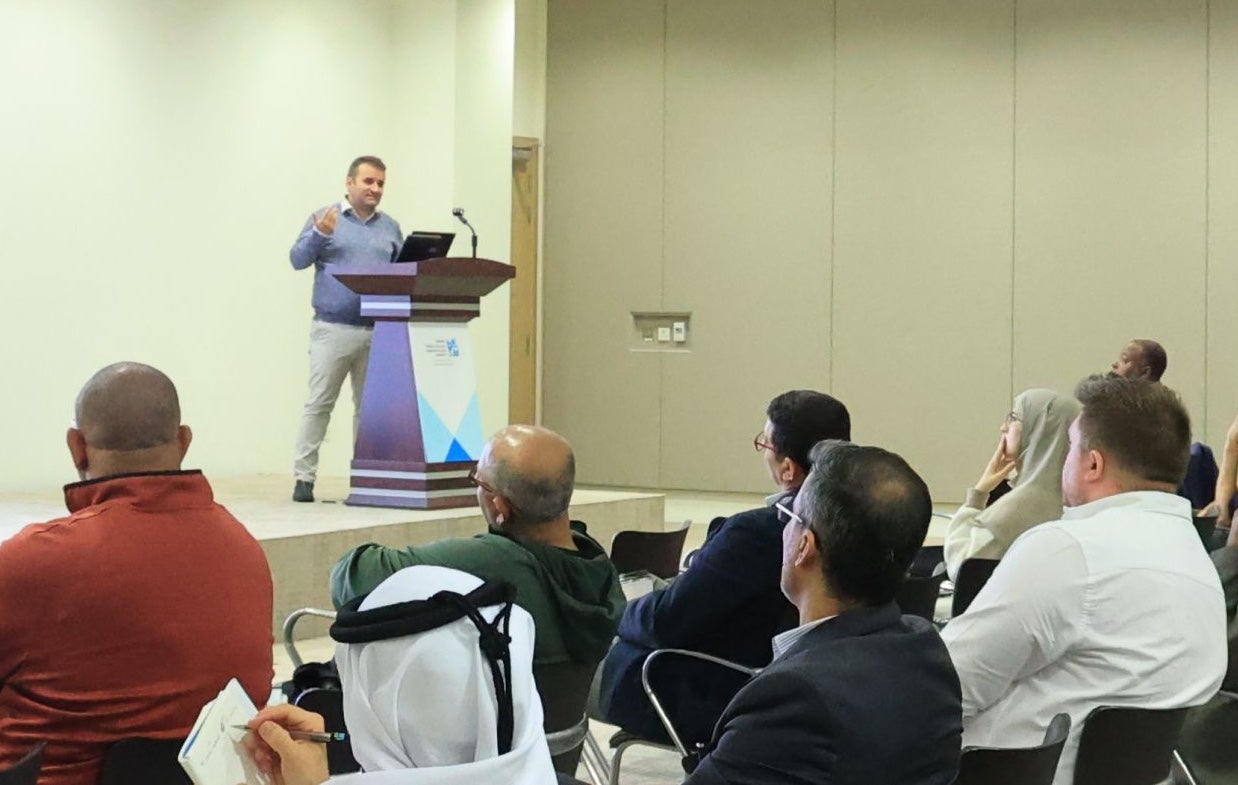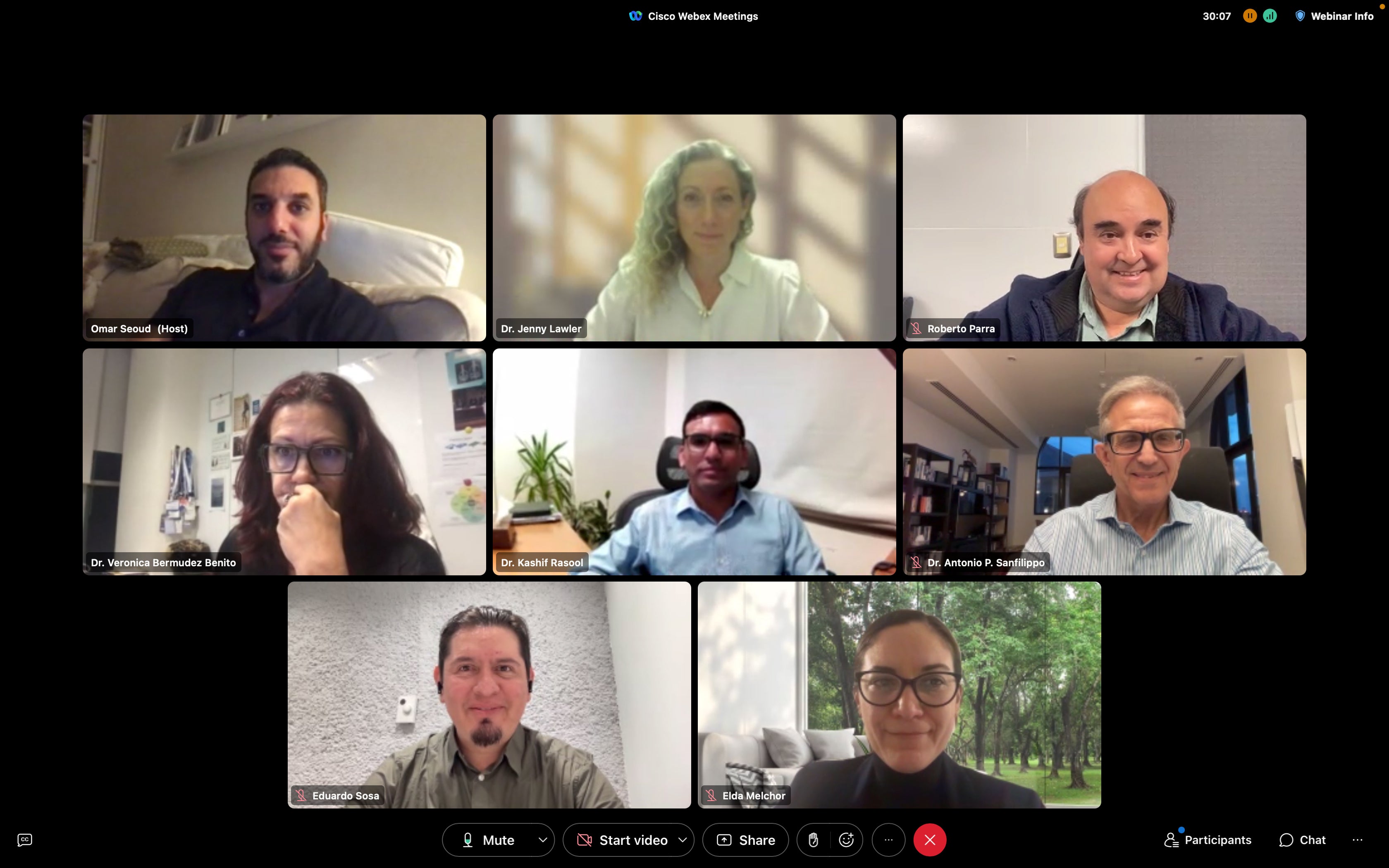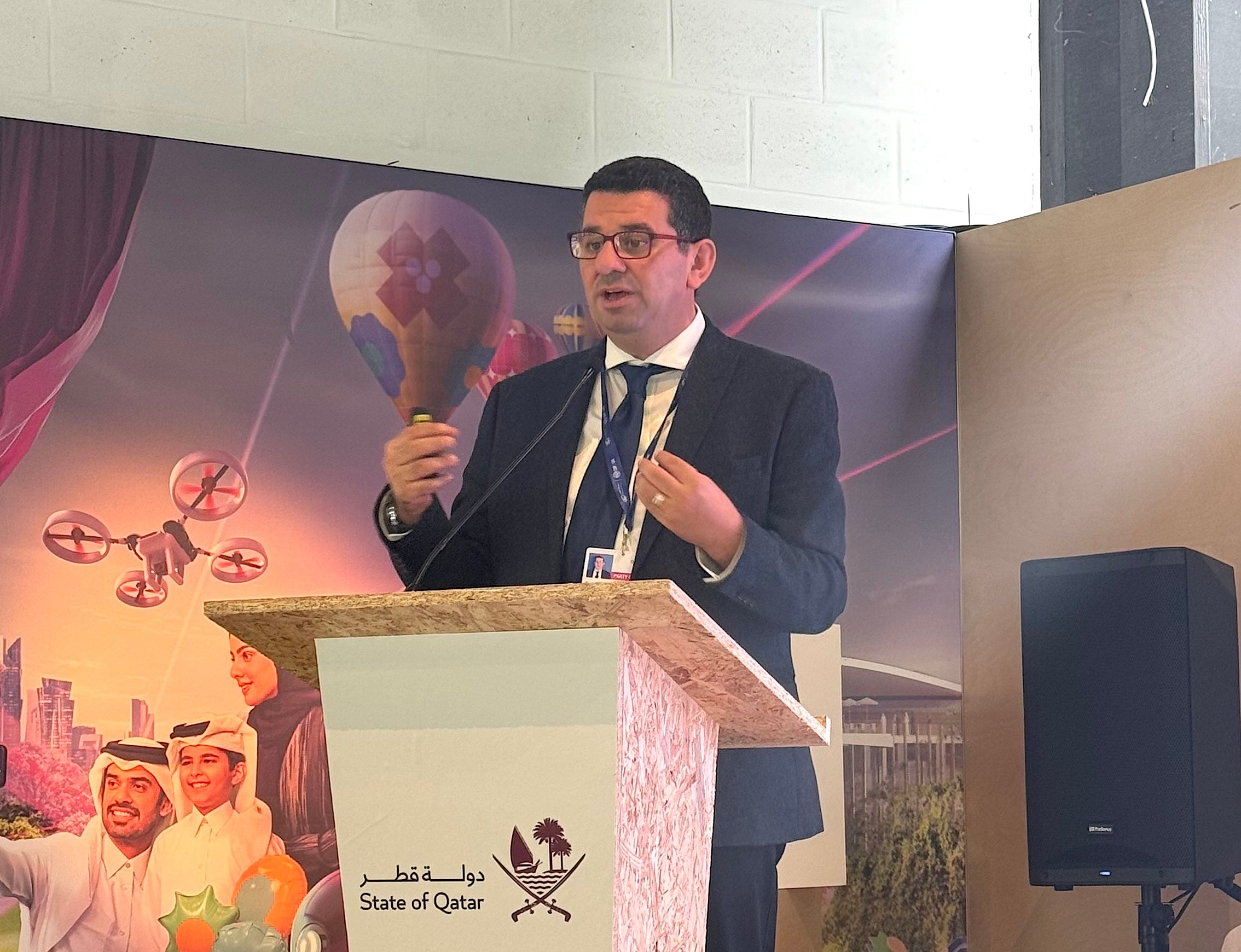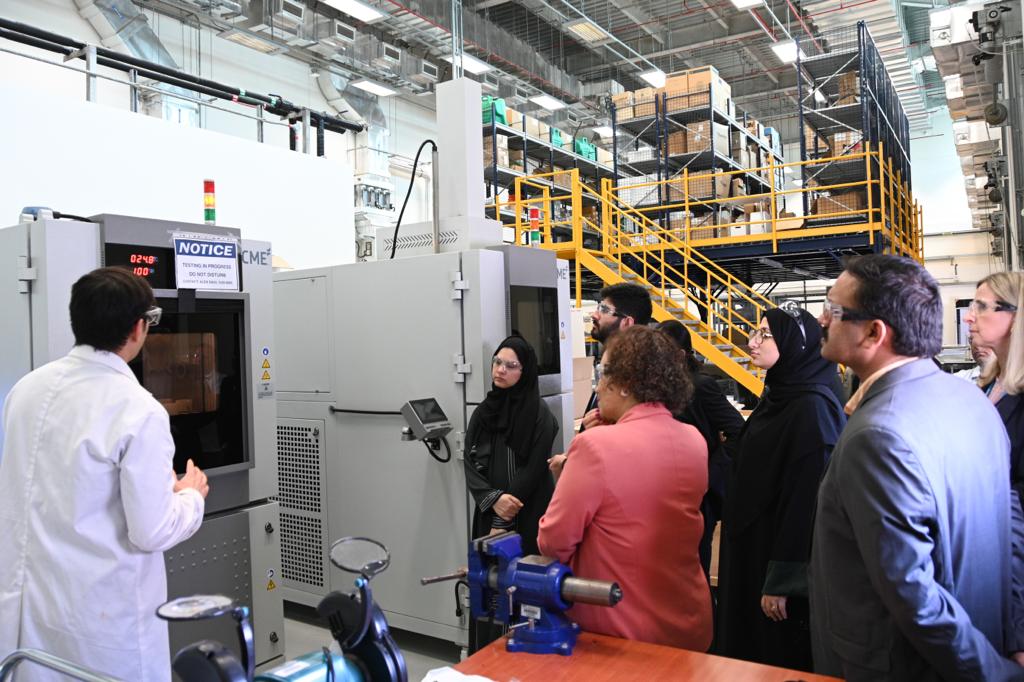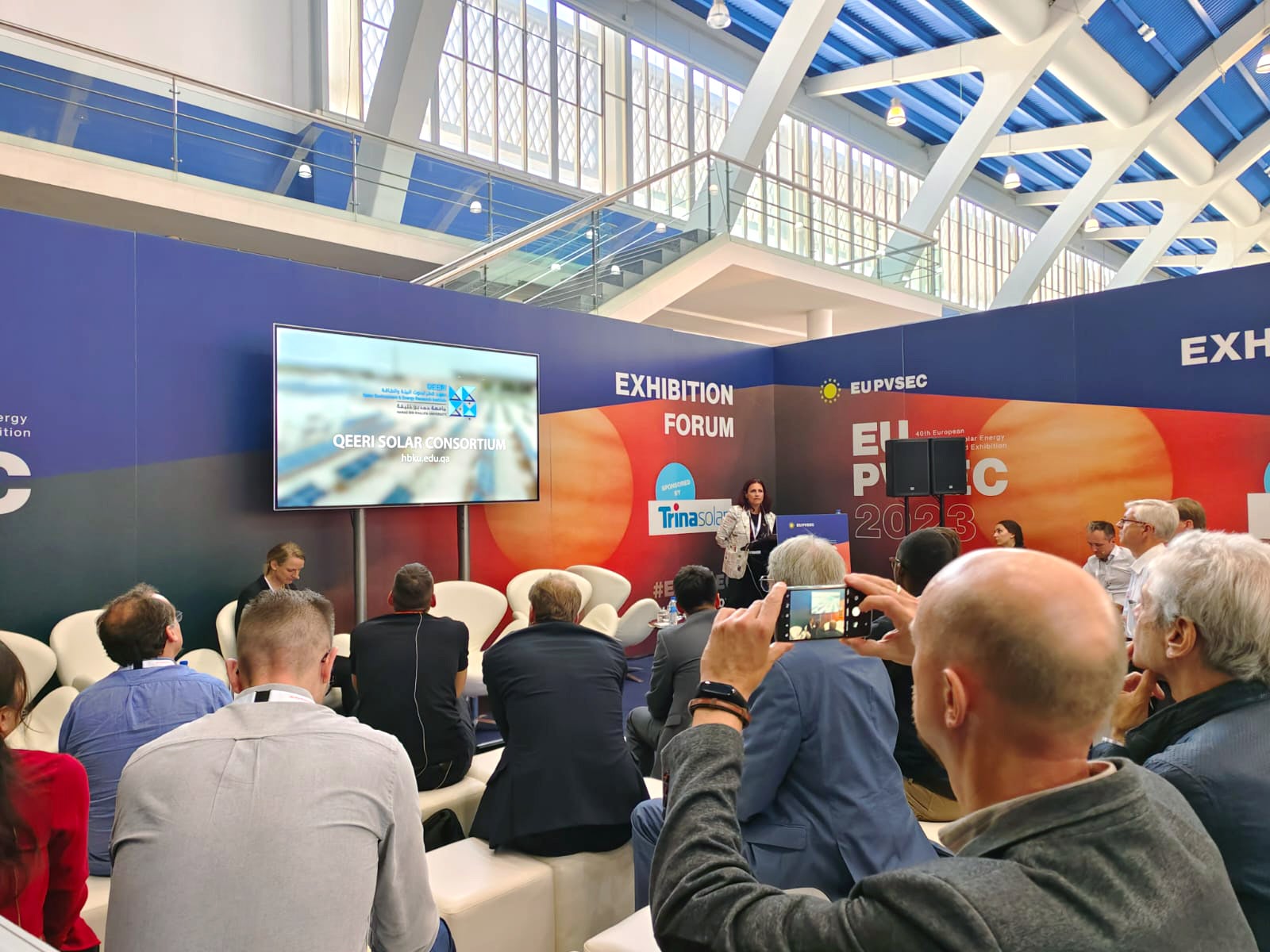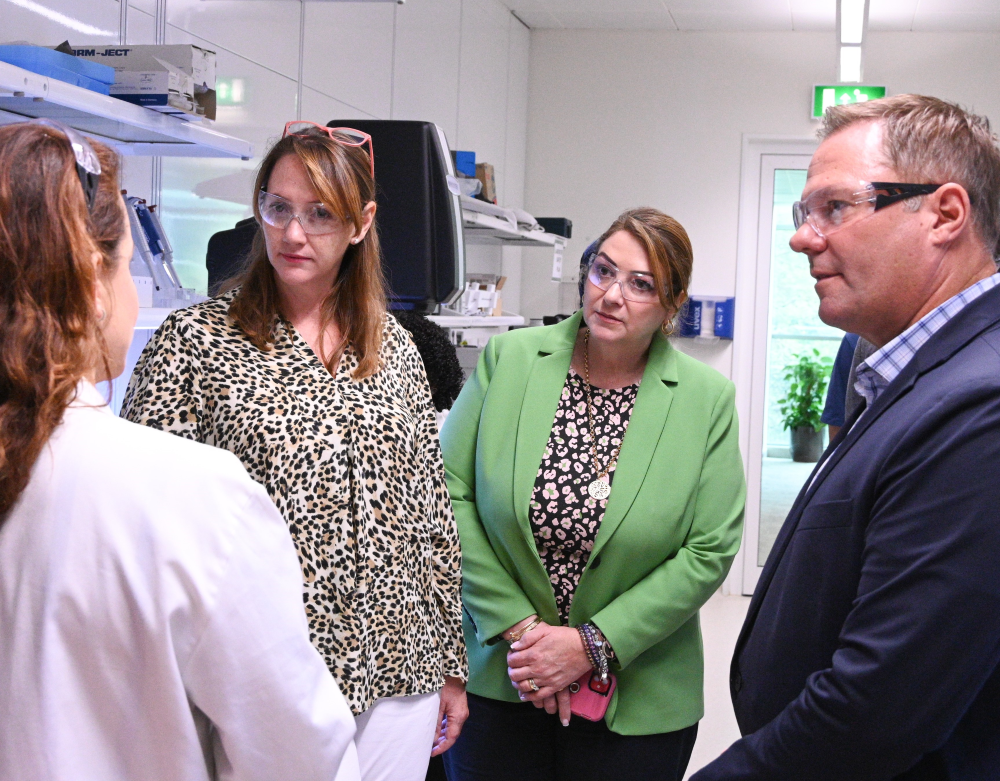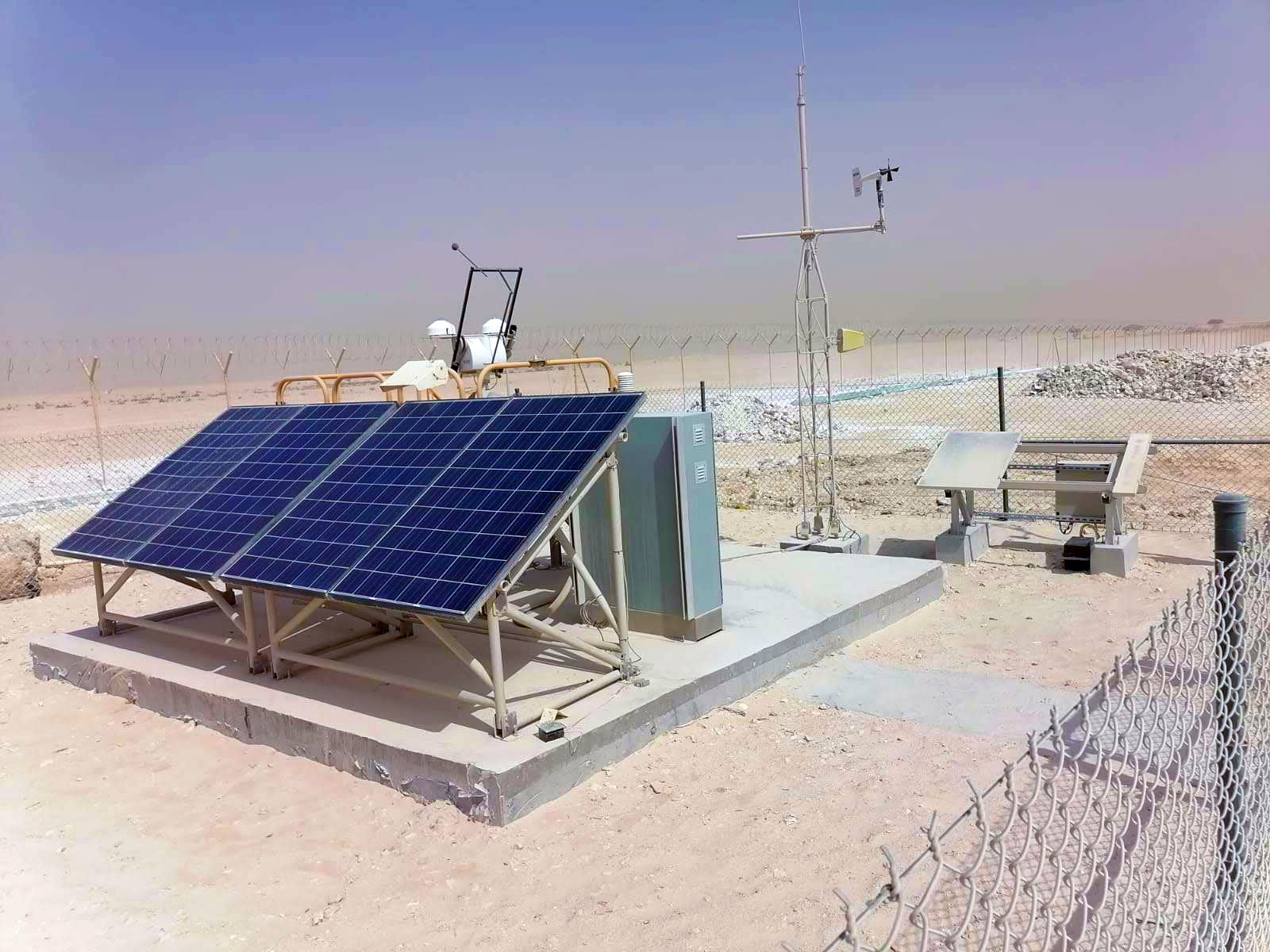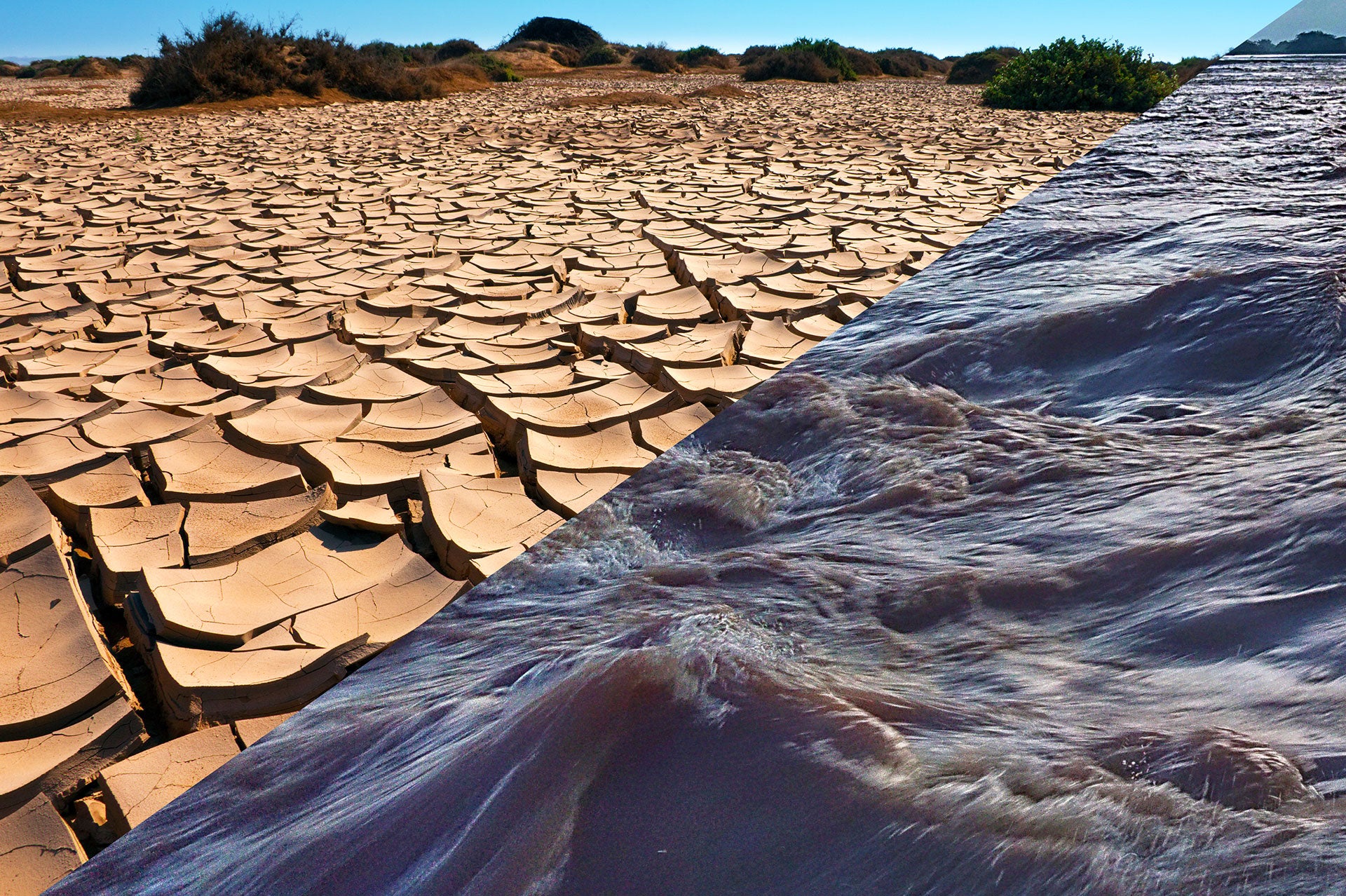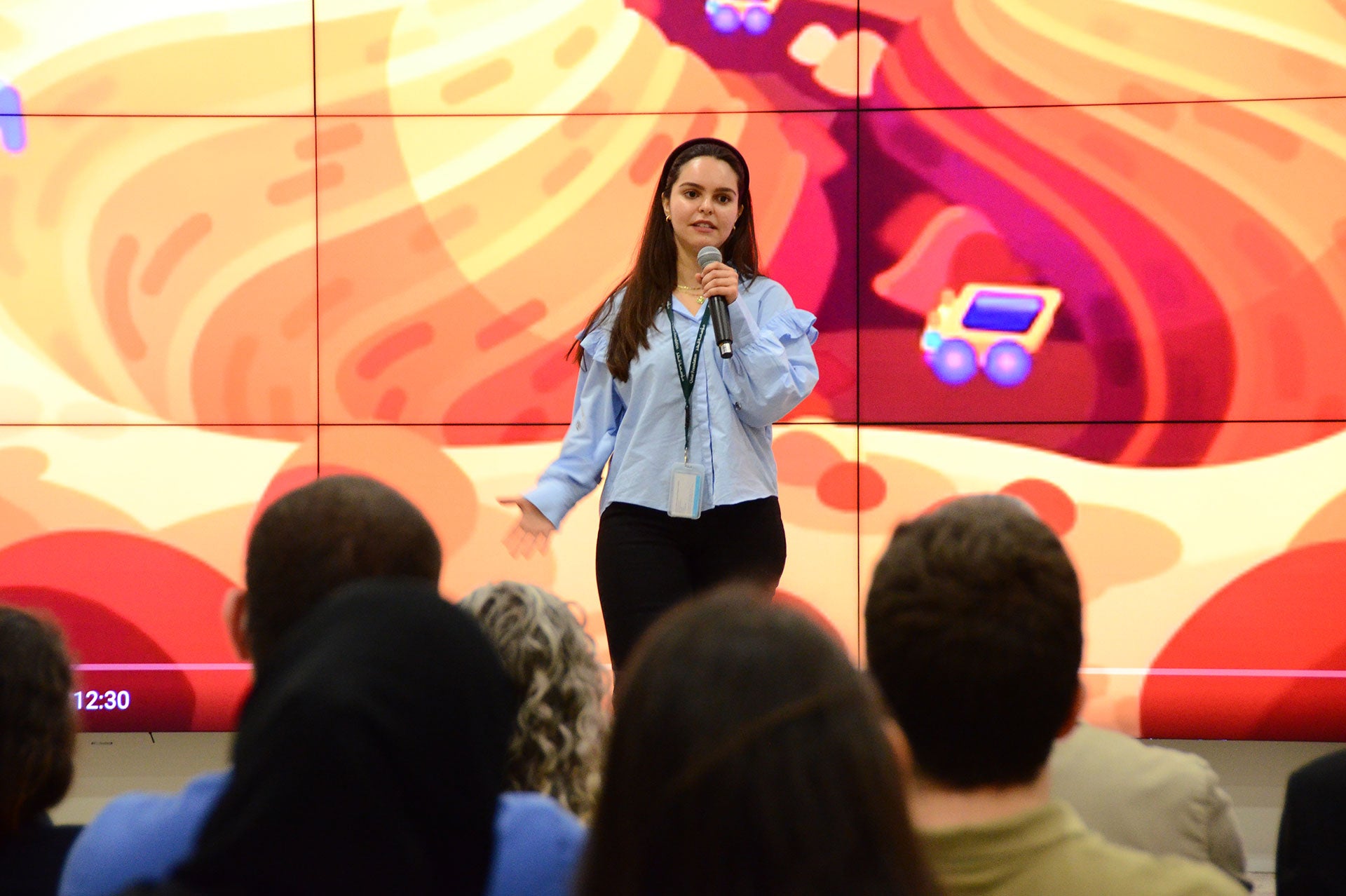
QEERI Announces Agreement with ExxonMobil Research Qatar
Partnership will enable innovation on recycling treated water produced by oil and gas sector
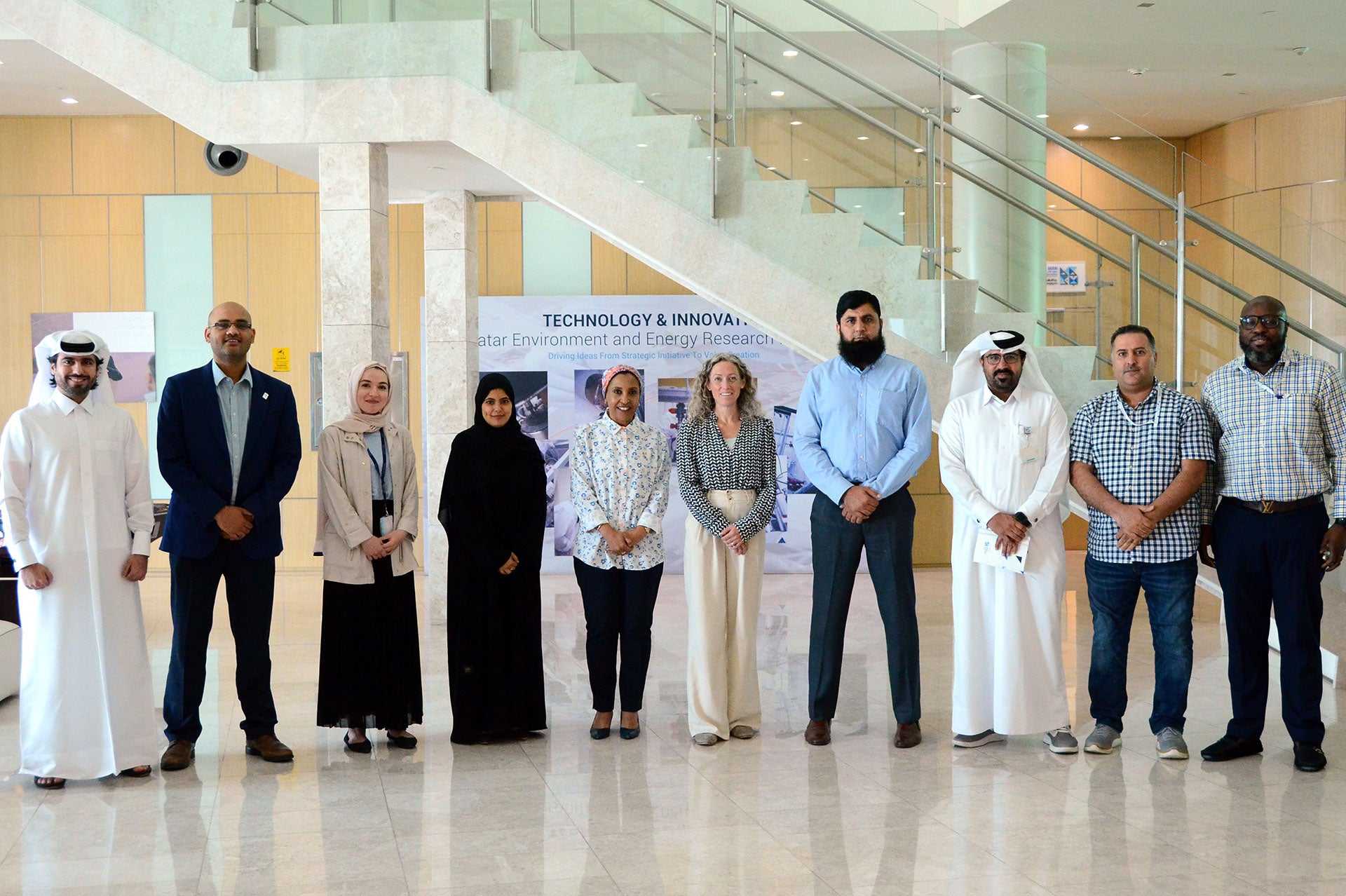
Qatar Environment and Energy Research Institute (QEERI), part of Hamad Bin Khalifa University (HBKU), has executed an agreement with ExxonMobil Research Qatar (EMRQ) to evaluate the beneficial reuse of treated produced water (TPW) from gas fields.
A feasibility assessment agreement recently signed by Dr. Marc Vermeersch, QEERI Executive Director, and EMRQ paves the way for collaborative projects to determine avenues, including technologies and materials for treatment, to enable the reuse of TPW for various landscaping, agricultural, and municipal purposes.
Produced water (PW) is the largest volume wastewater related to oil and gas production. The PW is usually injected into onshore deep wells for disposal after some treatment. With the volume of PW expected to rise in Qatar and worldwide, sustainable alternatives are needed.
The agreement outlines three major areas of collaboration: the analysis of technologies for produced water treatment; the evaluation of water quality parameters; and the removal of primary pollutants from treated produced water. The entities will develop technologies and materials for the efficient removal of toxic organic pollutants and heavy metals from treated produced water and explore the potential for their commercialization.
Stressing the importance of these aims, Dr. Vermeersch said: “I am delighted that QEERI is partnering with ExxonMobil Research Qatar to execute this project. Their decades of experience add tremendous value, and bringing together our expertise and resources will go a long way in ensuring Qatar’s water sustainability objectives are met. Sustainable water treatment and the enhancement of wastewater reuse is a national priority and also at the core of operations at QEERI’s Water Center. Working with ExxonMobil, we will test and build upon the innovative technologies being developed in-house at QEERI to address this pressing issue to formulate solutions that solve water sustainability challenges in Qatar and globally.”
Along with potentially solving a long-standing problem facing the hydrocarbon industry, by addressing the environmental and economic constraints of traditional PW disposal practices, the outcomes of the agreement are set to help Qatar diversify its water sources. It will ultimately help the country reduce the high cost of investing in producing fresh water.
Dr. Jenny Lawler, Senior Research Director of the Water Center at QEERI, added that “non-conventional water resources such as that available from industrial activities in Qatar are critical for enhancing water security for arid regions, and we are delighted to be able to work with EMRQ on this exciting initiative”.
Highlighting the importance of the partnership, Ana Laplaza, EMRQ’s Research Director, said: “We are very pleased to announce our collaboration with QEERI to investigate the feasibility of incorporating treated produced water from gas fields for beneficial reuse. Our team of scientists and researchers is looking forward to continuing their work in sustainability-related research through this significant project, which will have valuable outcomes for Qatar and its people.”
Dr. Suhur Saeed, Program Research Lead for Water Reuse at EMRQ, said: “We look forward to continuing our collaboration and friendship as we develop our technology towards helping to achieve solutions to environmental challenges for Qatar.”
To learn more about programs and initiatives of the Qatar Environment and Energy Research Institute, please visit qeeri.hbku.edu.qa.
Related News
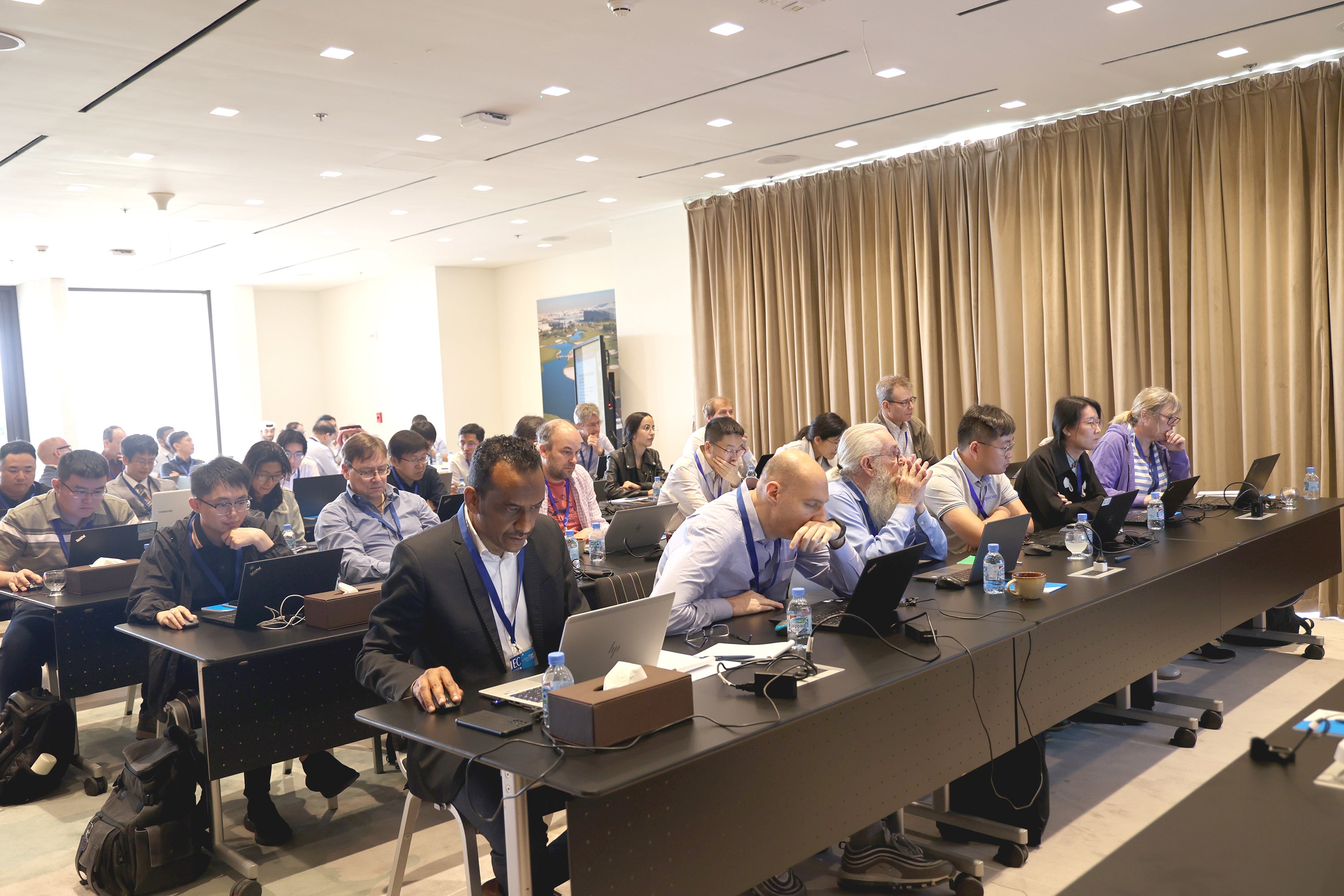
QEERI Hosts Meetings to Advance International Standards for Photovoltaic Modules
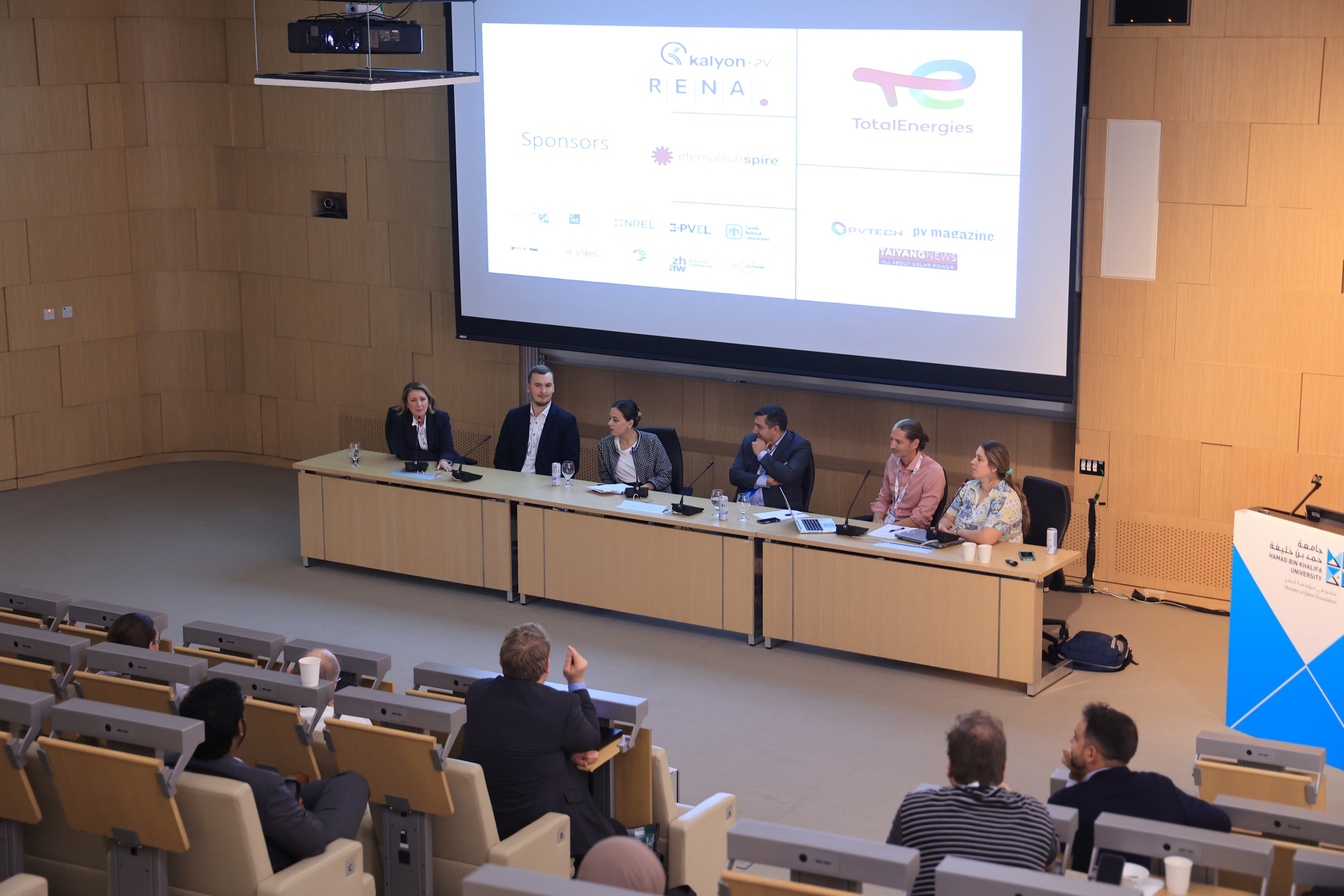
HBKU’s QEERI Hosts the 10th Bifacial Photovoltaic Workshop focused on desert technologies
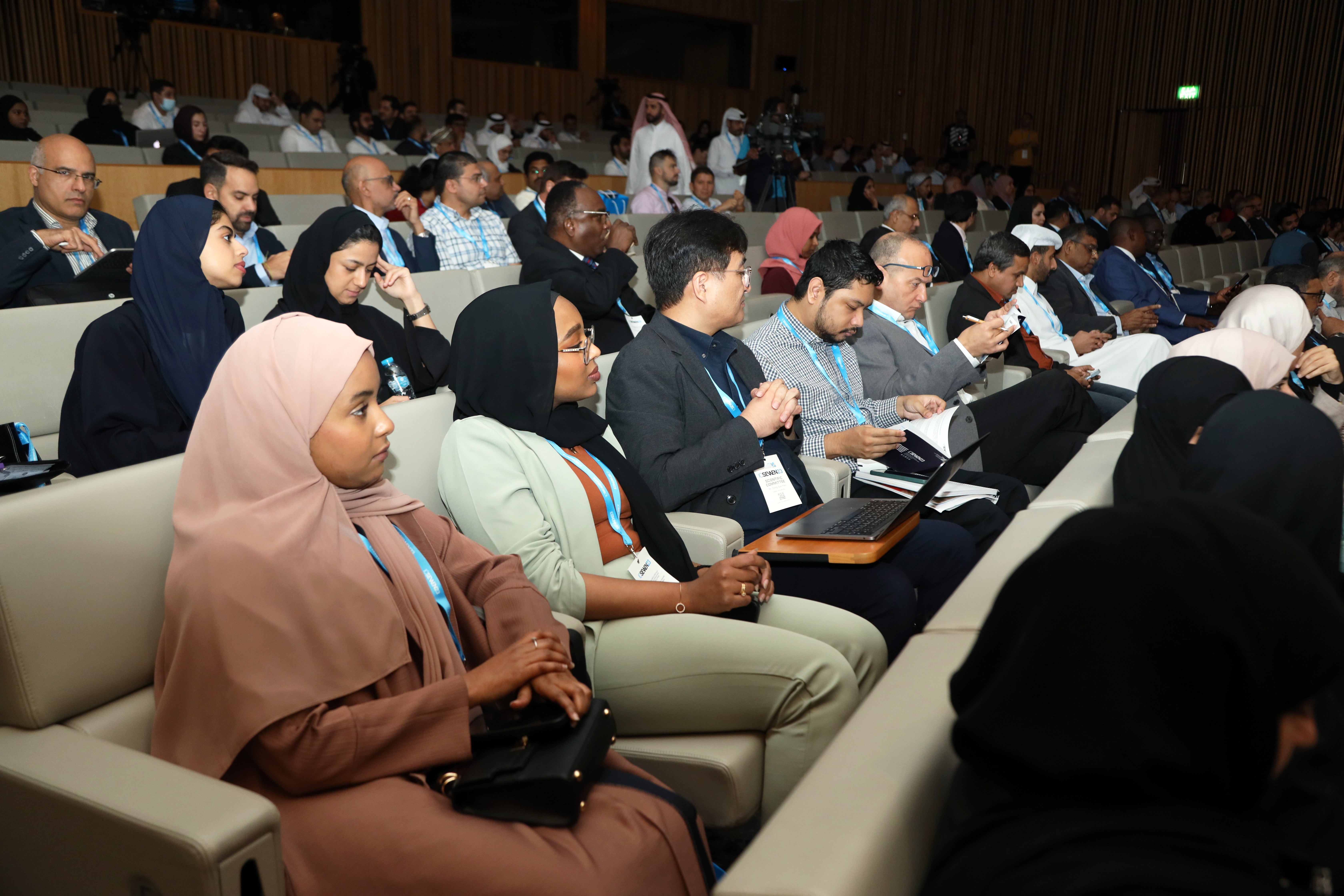
HBKU’s QEERI Concludes ICSEWEN23, Announces Winners, and Unveils Environmental Insights
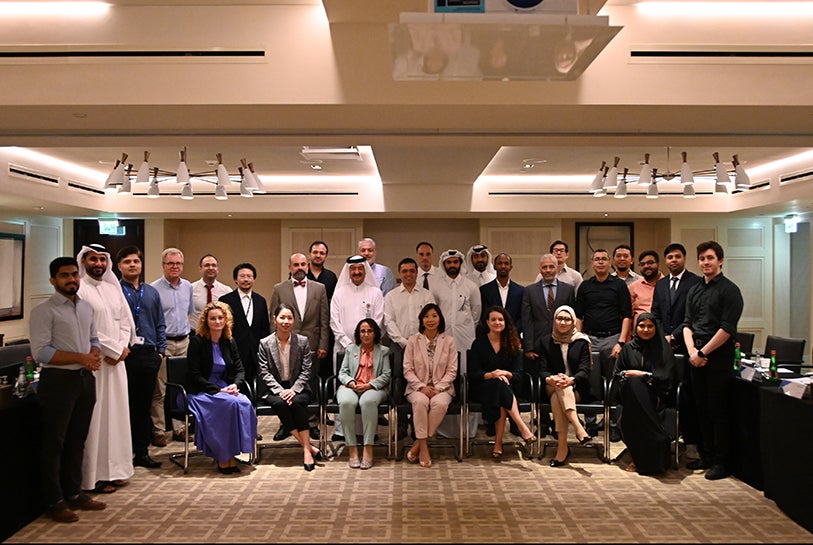
QEERI Corrosion Center Renews Strong Ties with Industry Partners and Stakeholders

QEERI Hosts Meetings to Advance International Standards for Photovoltaic Modules

HBKU’s QEERI Hosts the 10th Bifacial Photovoltaic Workshop focused on desert technologies

HBKU’s QEERI Concludes ICSEWEN23, Announces Winners, and Unveils Environmental Insights

QEERI Corrosion Center Renews Strong Ties with Industry Partners and Stakeholders

QEERI Hosts Meetings to Advance International Standards for Photovoltaic Modules

HBKU’s QEERI Hosts the 10th Bifacial Photovoltaic Workshop focused on desert technologies

HBKU’s QEERI Concludes ICSEWEN23, Announces Winners, and Unveils Environmental Insights

QEERI Corrosion Center Renews Strong Ties with Industry Partners and Stakeholders

QEERI Hosts Meetings to Advance International Standards for Photovoltaic Modules

HBKU’s QEERI Hosts the 10th Bifacial Photovoltaic Workshop focused on desert technologies

HBKU’s QEERI Concludes ICSEWEN23, Announces Winners, and Unveils Environmental Insights

QEERI Corrosion Center Renews Strong Ties with Industry Partners and Stakeholders

QEERI Hosts Meetings to Advance International Standards for Photovoltaic Modules

HBKU’s QEERI Hosts the 10th Bifacial Photovoltaic Workshop focused on desert technologies

HBKU’s QEERI Concludes ICSEWEN23, Announces Winners, and Unveils Environmental Insights

QEERI Corrosion Center Renews Strong Ties with Industry Partners and Stakeholders

QEERI Hosts Meetings to Advance International Standards for Photovoltaic Modules

HBKU’s QEERI Hosts the 10th Bifacial Photovoltaic Workshop focused on desert technologies

HBKU’s QEERI Concludes ICSEWEN23, Announces Winners, and Unveils Environmental Insights

QEERI Corrosion Center Renews Strong Ties with Industry Partners and Stakeholders

QEERI Hosts Meetings to Advance International Standards for Photovoltaic Modules

HBKU’s QEERI Hosts the 10th Bifacial Photovoltaic Workshop focused on desert technologies

HBKU’s QEERI Concludes ICSEWEN23, Announces Winners, and Unveils Environmental Insights

QEERI Corrosion Center Renews Strong Ties with Industry Partners and Stakeholders

QEERI Hosts Meetings to Advance International Standards for Photovoltaic Modules

HBKU’s QEERI Hosts the 10th Bifacial Photovoltaic Workshop focused on desert technologies

HBKU’s QEERI Concludes ICSEWEN23, Announces Winners, and Unveils Environmental Insights

QEERI Corrosion Center Renews Strong Ties with Industry Partners and Stakeholders

QEERI Hosts Meetings to Advance International Standards for Photovoltaic Modules

HBKU’s QEERI Hosts the 10th Bifacial Photovoltaic Workshop focused on desert technologies

HBKU’s QEERI Concludes ICSEWEN23, Announces Winners, and Unveils Environmental Insights

QEERI Corrosion Center Renews Strong Ties with Industry Partners and Stakeholders

QEERI Hosts Meetings to Advance International Standards for Photovoltaic Modules

HBKU’s QEERI Hosts the 10th Bifacial Photovoltaic Workshop focused on desert technologies

HBKU’s QEERI Concludes ICSEWEN23, Announces Winners, and Unveils Environmental Insights

QEERI Corrosion Center Renews Strong Ties with Industry Partners and Stakeholders

QEERI Hosts Meetings to Advance International Standards for Photovoltaic Modules

HBKU’s QEERI Hosts the 10th Bifacial Photovoltaic Workshop focused on desert technologies

HBKU’s QEERI Concludes ICSEWEN23, Announces Winners, and Unveils Environmental Insights

QEERI Corrosion Center Renews Strong Ties with Industry Partners and Stakeholders

QEERI Hosts Meetings to Advance International Standards for Photovoltaic Modules

HBKU’s QEERI Hosts the 10th Bifacial Photovoltaic Workshop focused on desert technologies

HBKU’s QEERI Concludes ICSEWEN23, Announces Winners, and Unveils Environmental Insights

QEERI Corrosion Center Renews Strong Ties with Industry Partners and Stakeholders

QEERI Hosts Meetings to Advance International Standards for Photovoltaic Modules

HBKU’s QEERI Hosts the 10th Bifacial Photovoltaic Workshop focused on desert technologies

HBKU’s QEERI Concludes ICSEWEN23, Announces Winners, and Unveils Environmental Insights

QEERI Corrosion Center Renews Strong Ties with Industry Partners and Stakeholders

QEERI Hosts Meetings to Advance International Standards for Photovoltaic Modules

HBKU’s QEERI Hosts the 10th Bifacial Photovoltaic Workshop focused on desert technologies

HBKU’s QEERI Concludes ICSEWEN23, Announces Winners, and Unveils Environmental Insights

QEERI Corrosion Center Renews Strong Ties with Industry Partners and Stakeholders

QEERI Hosts Meetings to Advance International Standards for Photovoltaic Modules

HBKU’s QEERI Hosts the 10th Bifacial Photovoltaic Workshop focused on desert technologies

HBKU’s QEERI Concludes ICSEWEN23, Announces Winners, and Unveils Environmental Insights

QEERI Corrosion Center Renews Strong Ties with Industry Partners and Stakeholders

QEERI Hosts Meetings to Advance International Standards for Photovoltaic Modules

HBKU’s QEERI Hosts the 10th Bifacial Photovoltaic Workshop focused on desert technologies

HBKU’s QEERI Concludes ICSEWEN23, Announces Winners, and Unveils Environmental Insights

QEERI Corrosion Center Renews Strong Ties with Industry Partners and Stakeholders

QEERI Hosts Meetings to Advance International Standards for Photovoltaic Modules

HBKU’s QEERI Hosts the 10th Bifacial Photovoltaic Workshop focused on desert technologies

HBKU’s QEERI Concludes ICSEWEN23, Announces Winners, and Unveils Environmental Insights

QEERI Corrosion Center Renews Strong Ties with Industry Partners and Stakeholders

QEERI Hosts Meetings to Advance International Standards for Photovoltaic Modules

HBKU’s QEERI Hosts the 10th Bifacial Photovoltaic Workshop focused on desert technologies

HBKU’s QEERI Concludes ICSEWEN23, Announces Winners, and Unveils Environmental Insights

QEERI Corrosion Center Renews Strong Ties with Industry Partners and Stakeholders

QEERI Hosts Meetings to Advance International Standards for Photovoltaic Modules

HBKU’s QEERI Hosts the 10th Bifacial Photovoltaic Workshop focused on desert technologies

HBKU’s QEERI Concludes ICSEWEN23, Announces Winners, and Unveils Environmental Insights

QEERI Corrosion Center Renews Strong Ties with Industry Partners and Stakeholders

QEERI Hosts Meetings to Advance International Standards for Photovoltaic Modules

HBKU’s QEERI Hosts the 10th Bifacial Photovoltaic Workshop focused on desert technologies

HBKU’s QEERI Concludes ICSEWEN23, Announces Winners, and Unveils Environmental Insights

QEERI Corrosion Center Renews Strong Ties with Industry Partners and Stakeholders

QEERI Hosts Meetings to Advance International Standards for Photovoltaic Modules

HBKU’s QEERI Hosts the 10th Bifacial Photovoltaic Workshop focused on desert technologies

HBKU’s QEERI Concludes ICSEWEN23, Announces Winners, and Unveils Environmental Insights

QEERI Corrosion Center Renews Strong Ties with Industry Partners and Stakeholders

QEERI Hosts Meetings to Advance International Standards for Photovoltaic Modules

HBKU’s QEERI Hosts the 10th Bifacial Photovoltaic Workshop focused on desert technologies

HBKU’s QEERI Concludes ICSEWEN23, Announces Winners, and Unveils Environmental Insights

QEERI Corrosion Center Renews Strong Ties with Industry Partners and Stakeholders

QEERI Hosts Meetings to Advance International Standards for Photovoltaic Modules

HBKU’s QEERI Hosts the 10th Bifacial Photovoltaic Workshop focused on desert technologies

HBKU’s QEERI Concludes ICSEWEN23, Announces Winners, and Unveils Environmental Insights

QEERI Corrosion Center Renews Strong Ties with Industry Partners and Stakeholders

QEERI Hosts Meetings to Advance International Standards for Photovoltaic Modules

HBKU’s QEERI Hosts the 10th Bifacial Photovoltaic Workshop focused on desert technologies

HBKU’s QEERI Concludes ICSEWEN23, Announces Winners, and Unveils Environmental Insights

QEERI Corrosion Center Renews Strong Ties with Industry Partners and Stakeholders

QEERI Hosts Meetings to Advance International Standards for Photovoltaic Modules

HBKU’s QEERI Hosts the 10th Bifacial Photovoltaic Workshop focused on desert technologies

HBKU’s QEERI Concludes ICSEWEN23, Announces Winners, and Unveils Environmental Insights

QEERI Corrosion Center Renews Strong Ties with Industry Partners and Stakeholders

QEERI Hosts Meetings to Advance International Standards for Photovoltaic Modules

HBKU’s QEERI Hosts the 10th Bifacial Photovoltaic Workshop focused on desert technologies

HBKU’s QEERI Concludes ICSEWEN23, Announces Winners, and Unveils Environmental Insights

QEERI Corrosion Center Renews Strong Ties with Industry Partners and Stakeholders

QEERI Hosts Meetings to Advance International Standards for Photovoltaic Modules

HBKU’s QEERI Hosts the 10th Bifacial Photovoltaic Workshop focused on desert technologies

HBKU’s QEERI Concludes ICSEWEN23, Announces Winners, and Unveils Environmental Insights

QEERI Corrosion Center Renews Strong Ties with Industry Partners and Stakeholders

QEERI Hosts Meetings to Advance International Standards for Photovoltaic Modules

HBKU’s QEERI Hosts the 10th Bifacial Photovoltaic Workshop focused on desert technologies

HBKU’s QEERI Concludes ICSEWEN23, Announces Winners, and Unveils Environmental Insights

QEERI Corrosion Center Renews Strong Ties with Industry Partners and Stakeholders

QEERI Hosts Meetings to Advance International Standards for Photovoltaic Modules

HBKU’s QEERI Hosts the 10th Bifacial Photovoltaic Workshop focused on desert technologies

HBKU’s QEERI Concludes ICSEWEN23, Announces Winners, and Unveils Environmental Insights

QEERI Corrosion Center Renews Strong Ties with Industry Partners and Stakeholders

QEERI Hosts Meetings to Advance International Standards for Photovoltaic Modules

HBKU’s QEERI Hosts the 10th Bifacial Photovoltaic Workshop focused on desert technologies

HBKU’s QEERI Concludes ICSEWEN23, Announces Winners, and Unveils Environmental Insights

QEERI Corrosion Center Renews Strong Ties with Industry Partners and Stakeholders

QEERI Hosts Meetings to Advance International Standards for Photovoltaic Modules

HBKU’s QEERI Hosts the 10th Bifacial Photovoltaic Workshop focused on desert technologies

HBKU’s QEERI Concludes ICSEWEN23, Announces Winners, and Unveils Environmental Insights

QEERI Corrosion Center Renews Strong Ties with Industry Partners and Stakeholders

QEERI Hosts Meetings to Advance International Standards for Photovoltaic Modules

HBKU’s QEERI Hosts the 10th Bifacial Photovoltaic Workshop focused on desert technologies

HBKU’s QEERI Concludes ICSEWEN23, Announces Winners, and Unveils Environmental Insights

QEERI Corrosion Center Renews Strong Ties with Industry Partners and Stakeholders

QEERI Hosts Meetings to Advance International Standards for Photovoltaic Modules

HBKU’s QEERI Hosts the 10th Bifacial Photovoltaic Workshop focused on desert technologies

HBKU’s QEERI Concludes ICSEWEN23, Announces Winners, and Unveils Environmental Insights

QEERI Corrosion Center Renews Strong Ties with Industry Partners and Stakeholders

QEERI Hosts Meetings to Advance International Standards for Photovoltaic Modules

HBKU’s QEERI Hosts the 10th Bifacial Photovoltaic Workshop focused on desert technologies

HBKU’s QEERI Concludes ICSEWEN23, Announces Winners, and Unveils Environmental Insights

QEERI Corrosion Center Renews Strong Ties with Industry Partners and Stakeholders

QEERI Hosts Meetings to Advance International Standards for Photovoltaic Modules

HBKU’s QEERI Hosts the 10th Bifacial Photovoltaic Workshop focused on desert technologies

HBKU’s QEERI Concludes ICSEWEN23, Announces Winners, and Unveils Environmental Insights

QEERI Corrosion Center Renews Strong Ties with Industry Partners and Stakeholders

QEERI Hosts Meetings to Advance International Standards for Photovoltaic Modules

HBKU’s QEERI Hosts the 10th Bifacial Photovoltaic Workshop focused on desert technologies

HBKU’s QEERI Concludes ICSEWEN23, Announces Winners, and Unveils Environmental Insights

QEERI Corrosion Center Renews Strong Ties with Industry Partners and Stakeholders

QEERI Hosts Meetings to Advance International Standards for Photovoltaic Modules

HBKU’s QEERI Hosts the 10th Bifacial Photovoltaic Workshop focused on desert technologies

HBKU’s QEERI Concludes ICSEWEN23, Announces Winners, and Unveils Environmental Insights

QEERI Corrosion Center Renews Strong Ties with Industry Partners and Stakeholders

QEERI Hosts Meetings to Advance International Standards for Photovoltaic Modules

HBKU’s QEERI Hosts the 10th Bifacial Photovoltaic Workshop focused on desert technologies

HBKU’s QEERI Concludes ICSEWEN23, Announces Winners, and Unveils Environmental Insights

QEERI Corrosion Center Renews Strong Ties with Industry Partners and Stakeholders

QEERI Hosts Meetings to Advance International Standards for Photovoltaic Modules

HBKU’s QEERI Hosts the 10th Bifacial Photovoltaic Workshop focused on desert technologies

HBKU’s QEERI Concludes ICSEWEN23, Announces Winners, and Unveils Environmental Insights

QEERI Corrosion Center Renews Strong Ties with Industry Partners and Stakeholders

QEERI Hosts Meetings to Advance International Standards for Photovoltaic Modules

HBKU’s QEERI Hosts the 10th Bifacial Photovoltaic Workshop focused on desert technologies

HBKU’s QEERI Concludes ICSEWEN23, Announces Winners, and Unveils Environmental Insights






